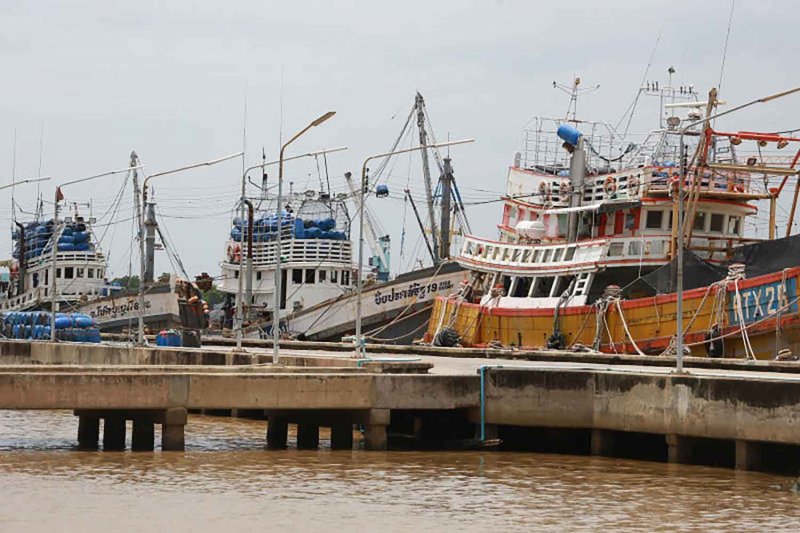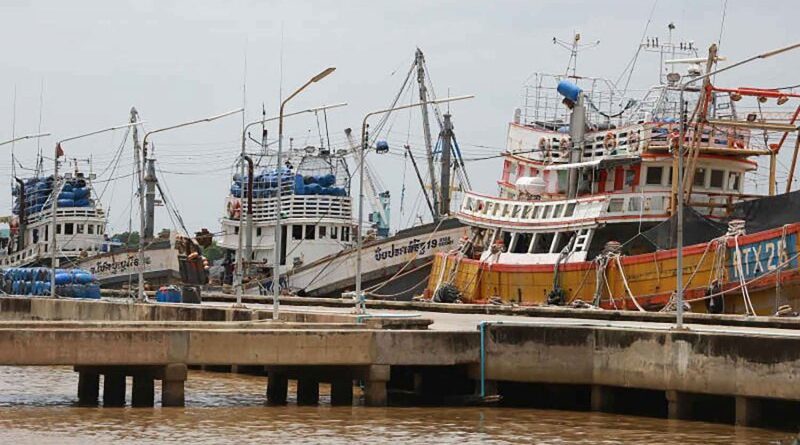Fisheries Act revised amid objections
Experts say changes put stocks at risk

Parliament has approved a controversial amendment to the Fisheries Act, a move the Department of Fisheries insists will balance marine conservation with the livelihoods of fisherfolk.
The House of Representatives passed the bill on Sept 17, despite objections from senators in February over Article 69.
The Department of Fisheries has defended the change, stressing the article was not removed but revised with additional safeguards.
Under the current Article 69, the use of seine nets with mesh sizes smaller than 2.5 centimetres is banned for nighttime fishing beyond 12 nautical miles.
The amended version allows their use under certain conditions starting 12 nautical miles from the shore.
Environmental groups and fisherfolk have warned this change could damage marine ecosystems and undermine Thailand’s international commitments on sustainable fishing.
Bancha Sukkaew, director-general of the Department of Fisheries, on Sept 29 defended the amendment.
He said that while the law permits smaller-mesh nets, it also grants the agriculture minister authority to approve fishing gear under strict conditions, including designated zones and mandatory research reviews every two years.
Research findings and policy measures must be approved by the National Fisheries Policy Committee and undergo public hearings.
“Any approval for using such fishing gear will be based on scientific studies to ensure no harm is done to marine resources. Research is the key factor in decision-making,” Mr Bancha said.
The new Fisheries Act, which amends the 2015 Royal Ordinance, includes 71 revised sections.
It reduces penalties, expands rights for small-scale fishers, and aims to align Thailand’s laws with international sustainability standards.
The law also abolishes Article 34, which restricted offshore fishing, revises the structure of provincial fisheries committees, limits fishing licences to Thai nationals and removes overlapping labour regulations in seafood processing plants.
Mr Bancha argued these changes will ease burdens on fisherfolk and revive the industry, saying: “The new law will preserve marine resources as a sustainable food source while improving fisherfolk’s incomes.”
The Act is awaiting publication in the Royal Gazette before taking effect.
The Department of Fisheries is also drafting subordinate laws to ensure effective implementation.
Opposition, however, remains strong. Piya Tetyam, chairman of the Federation of Thai Fisherfolk Associations, denounced Article 69 as a “legal loophole” that reintroduces destructive fishing practices banned since 1983.
“Past studies by the Department of Fisheries clearly showed the severe impacts of this equipment on marine ecosystems, especially larvae.
“This law only benefits about 175 commercial trawlers, while small-scale fisherfolk who depend on mature fish will suffer the most,” he warned.
Mr Piya said his group plans to launch a campaign in Bangkok by year’s end to raise public awareness of the ecological risks, warning of a “catastrophe” if mature fish stocks continue to decline.
Source – Bangkok News




